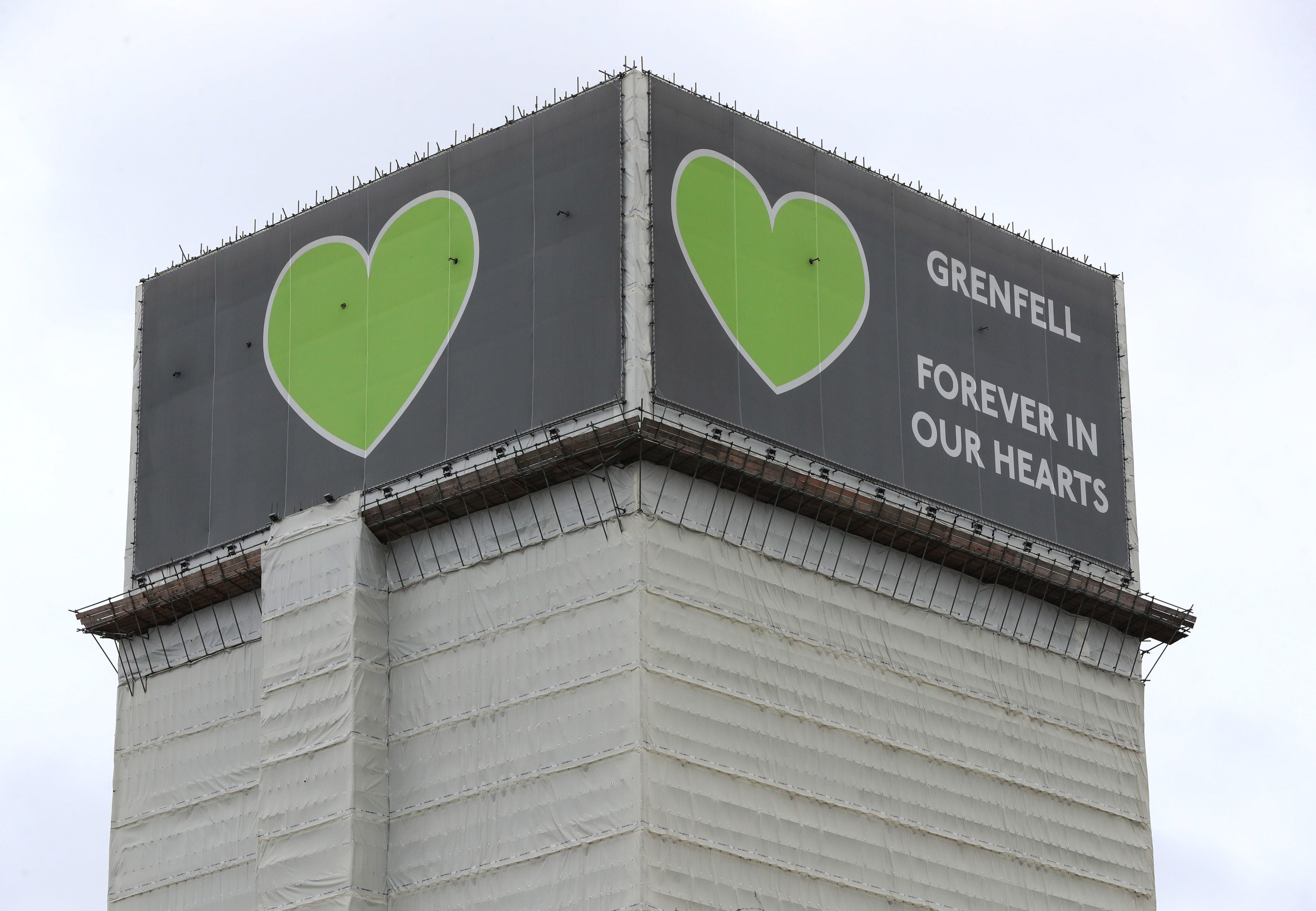Grenfell cladding was ‘wholly unorthodox’ says panel manufacturer
It would be ‘wrong and unfair’ to hold company responsible for deadly blaze, says Arconic

Your support helps us to tell the story
From reproductive rights to climate change to Big Tech, The Independent is on the ground when the story is developing. Whether it's investigating the financials of Elon Musk's pro-Trump PAC or producing our latest documentary, 'The A Word', which shines a light on the American women fighting for reproductive rights, we know how important it is to parse out the facts from the messaging.
At such a critical moment in US history, we need reporters on the ground. Your donation allows us to keep sending journalists to speak to both sides of the story.
The Independent is trusted by Americans across the entire political spectrum. And unlike many other quality news outlets, we choose not to lock Americans out of our reporting and analysis with paywalls. We believe quality journalism should be available to everyone, paid for by those who can afford it.
Your support makes all the difference.The use of cladding on the Grenfell Tower was “wholly unorthodox” and it would therefore be “wrong and unfair” to hold the manufacturer responsible for the 2017 fire, an inquiry heard on Tuesday.
Speaking on behalf of Arconic, the panel manufacturer, Stephen Hockman QC, told the court that the cladding was used in a “wholly unorthodox and irregular” way on the west London tower and that Arconic should not bear the responsibility for the outcome.
The company, formerly known as Alcoa, supplied the cladding panels that were used in the refurbishment of the Grenfell Tower, which were later found to have fuelled the fire that caused 72 deaths.
The 2019 inquiry found that the “principal reason” that flames engulfed the building at such speed was because of the combustible cladding that acted like a “source of fuel”.
But Mr Hockman insisted this conclusion be placed in a more accurate context.
In his testimony, Mr Hockman highlighted issues around a lack of maintenance of fire protection systems and the failure of compartmentation and reliance on the stay-put policy, which were among the “extraordinary range of factors” he said were “ultimately responsible for the tragedy to a far greater extent than the role played by any individual product”.
He told the court that the cladding panels were “capable of being used in a safe and compliant manner,” adding that the fire resulted from the way the panels were used, “in combination with a wide range of other combustible material”.
He added that the company had “no control” over which materials were used in conjunction with its product or over the arrangement of its product.
Mr Hockman also reminded the court of previous testimony from a façade expert, who said that “a reasonably competent cladding contractor ought to be aware of the combustibility” of the cladding.
He added that anyone concerned about the choice of cladding could have easily checked the combustibility with the manufacturer.
“None of those responsible for the refurbishment can escape their share of responsibility by claiming ignorance.”
Mr Hockman’s testimony was part of Arconic’s closing statement for the inquiry’s examination of the refurbishment of the Grenfell Tower and the marketing and testing of products used.
The inquiry previously heard how Arconic allegedly failed to disclose “disastrous” fire test results, specifically that the type of panel used in the Grenfell refurbishment performed “spectacularly worse” in fire tests than other options.
Geriant Webb, QC, representing insulation industry leader Kingspan, told the court that Arconic “knew or should have known that the product was unsafe and not suitable for use on tall residential buildings”.
While a small quantity of Kingspan’s K15 foam insulation was used on the Grenfell Tower, Mr Webb said that it played no role in the design or installation of the cladding system.
He acknowledged that there were “certain shortcomings” over some aspects of the company’s testing of K15, but added that these had “not resulted in anyone being misled in any material way”.
Craig Orr QC, representing Celotex, the maker of the Rs5000 insulation used in Grenfell Tower’s cladding system, said the court should reject Arconic’s claim that its cladding could be used in a compliant fashion in high rise buildings.
He told the hearing that Arconic’s technical manager, Claude Wehrle, had warned that the panels used in the refurbishment were “dangerous and unsuitable for use on cladding facades”.
Throughout the inquiry, Celotex has faced questions around the manipulation of a fire safety test that secured a pass for its combustible Rs5000 insulation to be used on high rise buildings.
In a statement, the company said: “certain issues emerged concerning the testing, certification and marketing of Celotex’s products,” which involved “unacceptable conduct on the part ofa number of employees”. It added that steps have been taken to ensure that no related issues reoccur.
The inquiry continues Wednesday morning, where testimony will be heard from Rydon maintenance, the Local Authority Building Control, Siderise Insulation and the Mayor of London.
Join our commenting forum
Join thought-provoking conversations, follow other Independent readers and see their replies
Comments